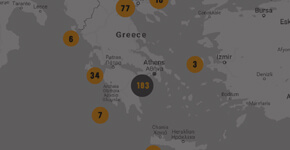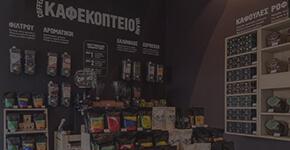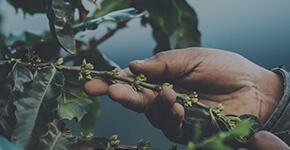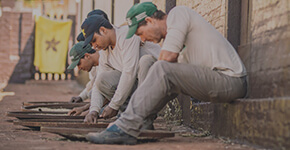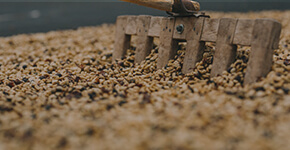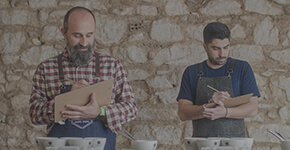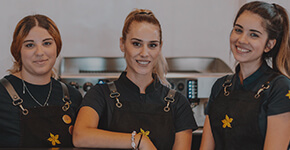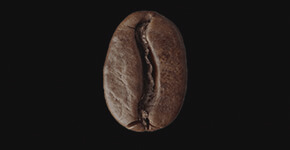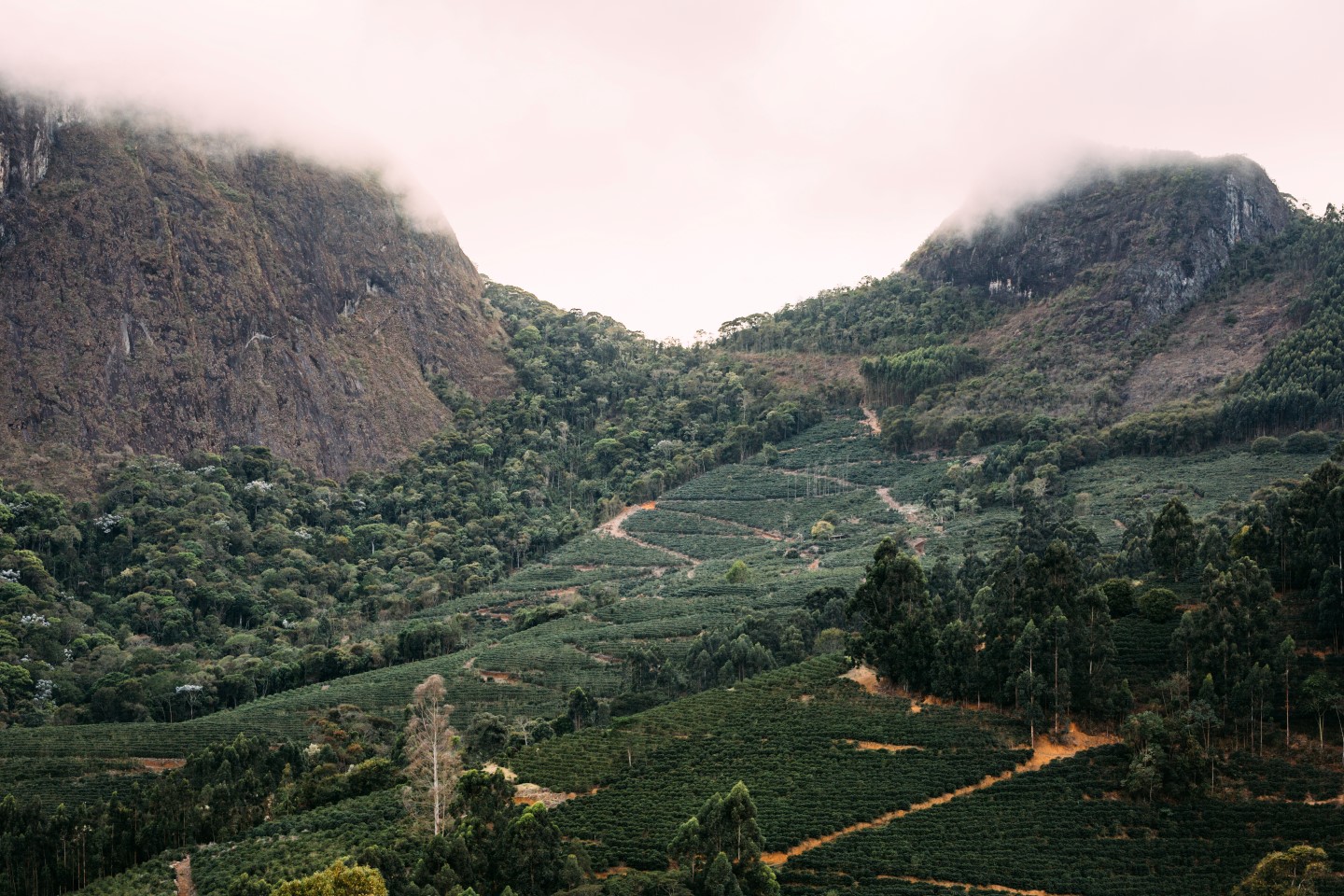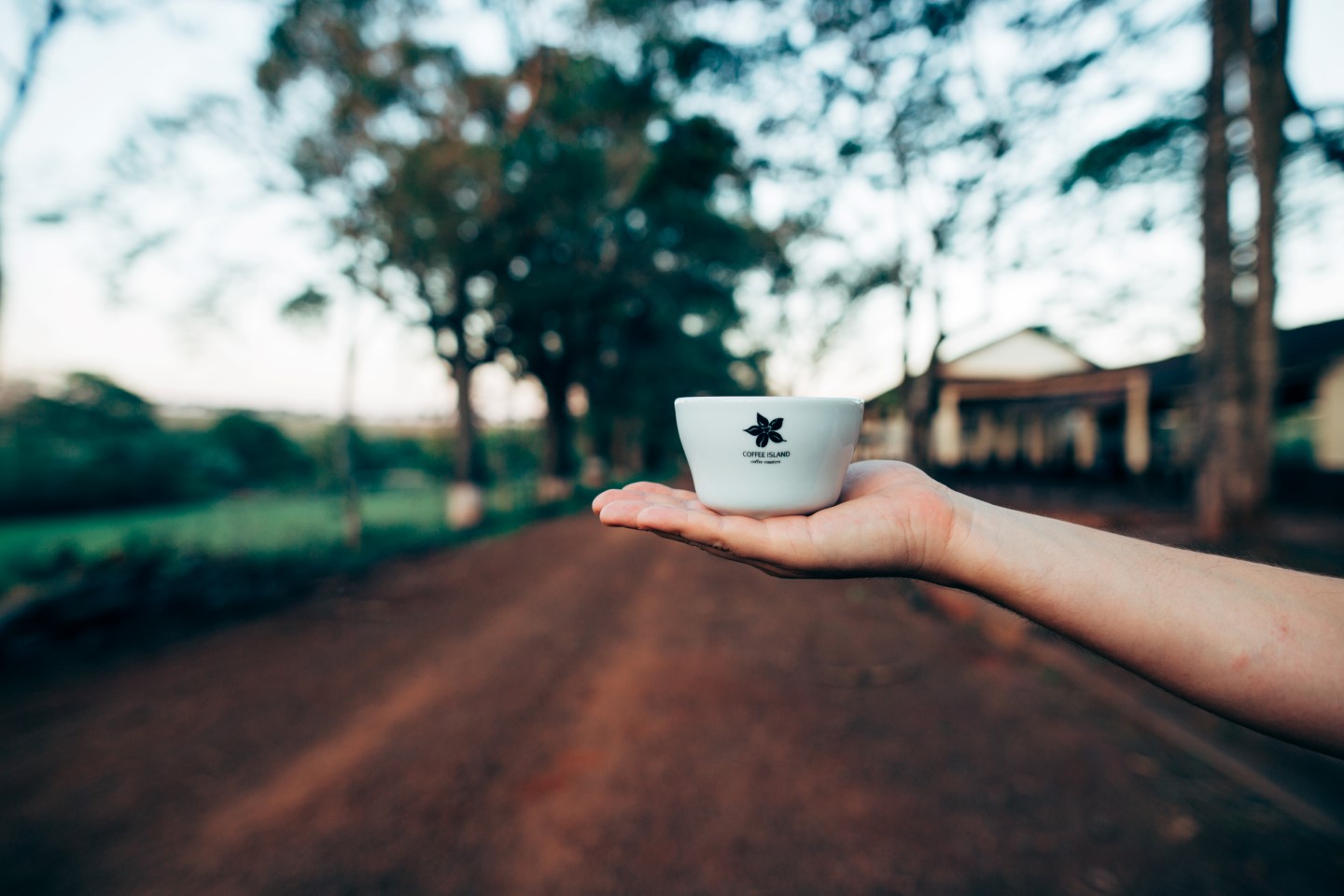We met Sam at the loft of gazARTE after his extremely interesting speech at Coffee Island’s event. We were surprised seeing him in a very formal and warm suit, considering the 38 °C outside.
Then, he kindly reminded us that he is coming from Ethiopia and then all about his tolerance to extreme temperatures made sense. In a very sweet and emotional interview he talked to us about his father, who spent his life in the coffee industry, to how many cups of coffee he has per day!
How did you get into the coffee industry at the first place?
I was born in Ethiopia, a little village named Agaro. My dad was in the coffee industry since 1949. I learnt everything about coffee from my family and more specifically from my dad.
What’s the most exciting thing in the coffee industry?
I think for me the whole process is very exciting. When I return to the farm it is always very sweet to admire the amazing coffee “flowers”, their really great aromas and smells. The whole experience is beautiful, from the tree to the flowers to the cherries. When you pick the cherries you never know what to expect, it’s like pregnancy, you never know if it’s going to be a boy or a girl! Also, you never know how beans are going to “develop” next year. I enjoy everything from this experience. I enjoy the flowers, I enjoy the cherries, I enjoy sampling, roasting. People sometimes have to wait 24 to 48 hours so they can taste that coffee, I never wait that long.
Can you elaborate a little bit more on your business?
I follow a slightly different business model from my father. I had the opportunity to travel to the US in 2004 and there, several specialty coffee opportunities presented themselves. People there show a big interest in specialty coffee so, in 2005 I studied business in US.
«With prices constantly dropping and directly affecting coffee costs, we still pay our employees more than average thanks to our partnership with Coffee Island.” S. D.
At your speech, you emphatically mentioned that you guarantee your employees are well paid and that their salary is four times higher than the average salary in Ethiopia. Could you please tell us a little bit more about that?
Honestly, for me as a coffee producer, the feeling is totally different. I mean, everyone in the specialty coffee industry have really good intentions but sometimes they don’t know how much an actual salary really is. For example, kids in Ethiopia are paid a dollar a day. And their work is really hard! Every day, from dusk till dawn, they work under the burning sun but at the end of the day they only “make” one dollar. So, I decided, I can afford to pay them a little bit more as a reward for the wonderful coffee they provide. The same applies for the women that work in our farm. I love my family, I love my mum, I love my sister and I believe women should be treated better than anyone!

So is it safe to assume that people working for you and your company are satisfied?
Yeah, they are very satisfied. These people know coffee only from the farming aspect and we need to compensate them about their work. Coffee farmers live in the farm while pickers live in the capital city where living costs are really expensive but nobody talks about them, their problems, their income. I hope one day everyone will start paying a bit more but none of that is going to happen without partnerships like the one we have with Coffee Island. They back us up, they take care of us, they say OK, as long as the coffee is good we are happy. Don’t forget, coffee is one of the most flexible merchandises in the world. Coffee prices could go up and down again in fifty seconds. My dad, after 50 years in the coffee industry, he was paralyzed and eventually passed away with the stress of coffee prices going up and down. There is no steady income, so it’s my responsibility, all who work for me, to have a steady income, to be able to send their kids to school and pay their bills. With the prices only going down at the moment, directly affecting total coffee costs, we still manage to pay our employees more than average, and for that we have to thank Coffee Island for their contribution.
“That microfarm coffee is going to be consistent in terms of its profile for the next 10 years.” S. D.
So, let’s talk a bit more about Coffee Island. What was your initial impression when you first met them?
I met Konstantinos last year in the New York Coffee Festival. To be honest my expectations were not that high because when I think of specialty coffee the mind “travels” to Scandinavia, Northern Europe and the USA. Yesterday was my first visit at a Coffee Island shop and let me just say WOW!!!!! Being a barista myself I delve into every detail, from how clean an espresso machine really is to the way an espresso is being poured. The espresso I tasted, was one of the best and I am saying that after having tried coffees from Australia, Scandinavia to all around the US and Canada. I tasted thousands of espressos in my life but, honestly, yesterday’s espresso was one of the best.
You are currently working on the Microfarm project. So, what’s the next step for you and Coffee Island?
The microfarm coffee is a bit different than other coffees because when you take on microfarm, you pay even more attention to details. You make sure everything is perfect, from the soil to the plant, and you have to be environmentally friendly with every step, in every detail.
“Talking about coffee is going to be the next big thing!!!” S.D.

How do you see Coffee consumers in Greece?
Greek coffee culture looks very well developed but, I think the most important thing is that the baristi know what they doing, that they know and do a really good job. I think consumers will always want to learn more about the coffee they consume. When you are “running” a coffee shop with your family for 27 years the only certainty is that you always learn, and I am still learning. I never stop learning, every day there I learn something new. The best anyone can do is educate your consumers through traditional and social media. Talking about coffee is going to be the next big thing!
What’s your favorite blend and how many coffees do you have every day?
When I wake up in the morning, the first thing I do is try an Ethiopia Yirgacheffe. We have the best not defeated coffee, carefully selected by the women in our farm, instead of using faceless machines to save time. So we take it to the next level by exporting the Yirgacheffe. If I don’t have a Yirgacheffe coffee, my day is not going to start well. Usually, I have 10 to 12 coffees per day and, at the end of the day, I have another espresso before going to bed so my day will end in the most delightful way.







